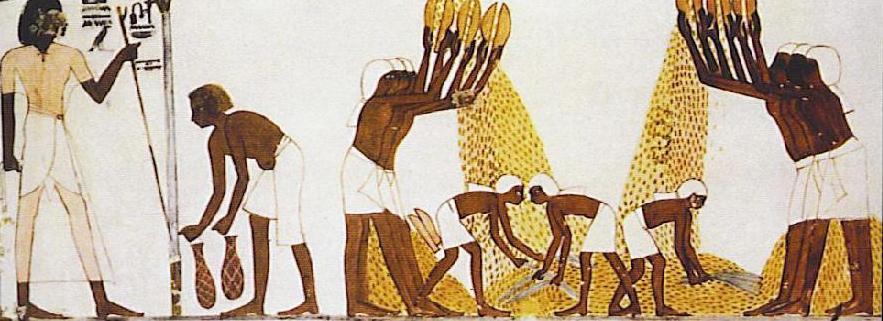Behar-Bechukotai starts out with instructions on how not to enslave your fellow Hebrews. If “your brother” sinks into poverty and has to sell himself to you, must not treat him like a slave. You must treat him like a hired hand (שָׂכִ֖יר, wage worker), and free him in the Jubilee Year (which came around once every 50 years.)
Now, before you start thinking we had an ancient Abraham Lincoln thing going on, please note. This only applied to your fellow Hebrews. You were free to own slaves of other nations. You could also buy and sell people from other nations. Today, of course, it’s illegal to buy or sell anyone. And that’s the way it should be.
Why do you not own Hebrew slaves? We are told in this parsha that the answer is: Because all the Children of Israel are slaves to God (Avodah עֲבוֹדָה). (Slave, servant, serf – same word.)
The parsha goes on to remind everyone not to make idols, or “no-gods” as one translation has it. Also, to keep the Sabbath holy.
God promises that if you obey God’s commandments, your crops will grow plentifully, you’ll have lots of children, and you’ll beat the stuffing out of all your enemies.
But, oh boy! If you step out of line! You’ll starve. You’ll be defeated by your enemies. You’ll be scattered among the nations. Your land will become a wasteland. God won’t kill you all off, but boy, will you be miserable!
Now, it so happens that, in that time, in the Middle East, it was pretty common for contracts to spell out in a huge amount of detail what will happen if the contract is broken, according to scholar Everett Fox. This parsha goes into such great detail about the downside of breaking the contract with God that the early Rabbis were uncomfortable. It has become customary in many synagogues to read these curses in an undertone!

Food for Thought
What does it mean that we are all slaves (or servants) of God? Does God own us? In what sense?
